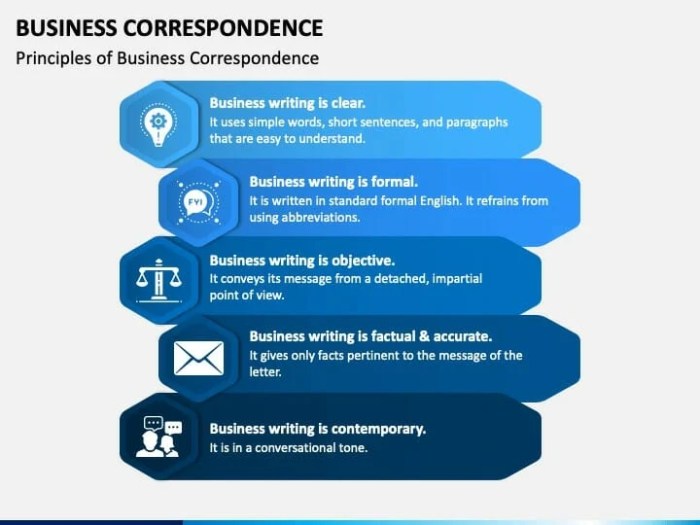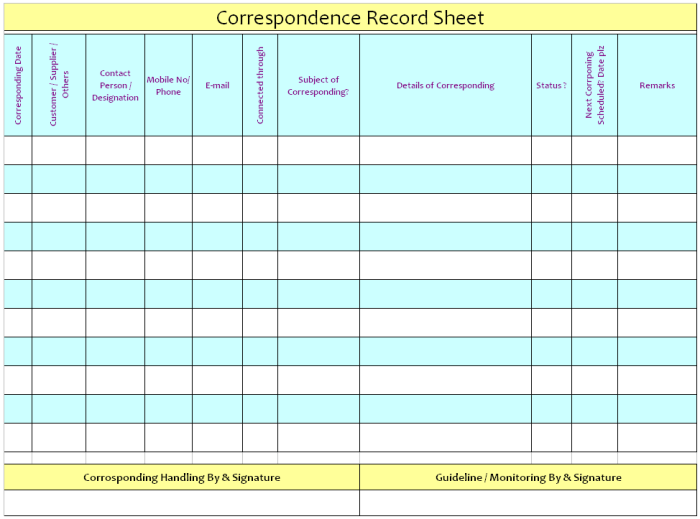Tweets and facebook posts can be forms of business correspondence. – Tweets and Facebook posts, once considered solely personal communications, have evolved into legitimate forms of business correspondence. This guide explores the characteristics, benefits, and legal implications of using social media platforms for professional communication, providing insights into how businesses can effectively leverage these channels to enhance customer service, build relationships, and navigate the ever-changing digital landscape.
From understanding the nuances that distinguish business-related social media posts from personal ones to navigating potential risks and challenges, this comprehensive resource offers a roadmap for businesses seeking to harness the power of social media for professional purposes.
Types of Social Media Business Correspondence
Social media platforms like Twitter and Facebook have become increasingly popular channels for business correspondence. These platforms offer unique opportunities to connect with customers, build relationships, and enhance brand reputation.
Tweets and Facebook posts that can be considered business correspondence include:
- Customer service inquiries and responses
- Product announcements and updates
- Company news and updates
- Job postings and recruitment announcements
- Thought leadership and industry insights
These types of posts are typically distinguished from personal communications by their professional tone, relevance to the business, and the inclusion of business-related information such as contact details or website links.
Benefits of Using Social Media for Business Correspondence

Social media offers several benefits for businesses looking to enhance customer service and build relationships:
- Increased accessibility:Social media platforms are accessible 24/7, allowing businesses to respond to customer inquiries promptly.
- Improved customer engagement:Social media enables businesses to engage with customers in real-time, building stronger relationships.
- Enhanced brand reputation:Social media platforms provide businesses with a platform to showcase their products, services, and values, enhancing their brand reputation.
Numerous successful campaigns and case studies demonstrate the effectiveness of social media for business communication:
- Dell’s “Social Media Listening Command Center”:Dell created a dedicated team to monitor social media conversations and respond to customer inquiries, resulting in improved customer satisfaction and increased sales.
- Starbucks’ “My Starbucks Idea”:Starbucks launched an online platform where customers could share their ideas and suggestions, fostering a sense of community and driving product innovation.
Considerations for Using Social Media in Business
While social media offers significant benefits for business correspondence, there are also potential risks and challenges to consider:
- Negative feedback and reputation damage:Social media can be a double-edged sword, as negative feedback and complaints can quickly spread and damage a company’s reputation.
- Time and resource constraints:Managing social media accounts and responding to customer inquiries can be time-consuming and require dedicated resources.
- Privacy and security concerns:Businesses need to be aware of privacy regulations and protect sensitive customer information when using social media.
To mitigate these risks, businesses should adopt best practices for managing social media accounts and responding to customer inquiries:
- Establish clear social media policies:Define guidelines for content creation, customer engagement, and crisis management.
- Monitor social media regularly:Track mentions of the business, respond to inquiries, and address negative feedback promptly.
- Train employees on social media etiquette:Ensure employees understand the importance of professionalism and confidentiality when using social media for business purposes.
Legal Implications of Social Media Business Correspondence: Tweets And Facebook Posts Can Be Forms Of Business Correspondence.

Businesses must be aware of the legal implications of using social media for business correspondence:
- Adherence to privacy regulations:Businesses must comply with privacy regulations such as the General Data Protection Regulation (GDPR) and the California Consumer Privacy Act (CCPA) when collecting and using customer data on social media.
- Protection of sensitive information:Businesses should protect sensitive customer information, such as financial data and personal details, from unauthorized access or disclosure.
- Legal liability for content:Businesses are legally responsible for the content they post on social media, including comments and responses from employees.
It is essential for businesses to seek legal advice to ensure compliance with relevant laws and regulations when using social media for business correspondence.
Tools and Resources for Social Media Business Correspondence
Numerous tools and resources are available to assist businesses in managing their social media accounts and tracking their performance:
- Social media management tools:These tools allow businesses to schedule posts, track analytics, and monitor social media conversations.
- Social media listening tools:These tools help businesses track mentions of their brand and industry s, providing valuable insights into customer sentiment and industry trends.
- Social media analytics tools:These tools provide businesses with detailed insights into the performance of their social media campaigns, including metrics such as reach, engagement, and conversions.
By utilizing these tools, businesses can optimize their social media presence, improve communication with customers, and measure the effectiveness of their social media efforts.
Case Studies and Examples

Numerous businesses have successfully used social media for business correspondence:
- Buffer’s “Transparency Report”:Buffer publishes a monthly report on its social media performance, providing valuable insights into its strategies and tactics.
- Hootsuite’s “Social Media ROI Calculator”:Hootsuite offers a tool that helps businesses calculate the return on investment (ROI) of their social media campaigns.
These case studies demonstrate the effectiveness of social media for business communication and provide valuable lessons for businesses looking to leverage these platforms.
Future Trends in Social Media Business Correspondence

Several emerging trends and technologies are likely to impact the use of social media for business correspondence:
- Artificial intelligence (AI):AI-powered tools will enhance social media management, enabling businesses to automate tasks such as content creation and customer engagement.
- Social commerce:Social media platforms are increasingly becoming platforms for e-commerce, allowing businesses to sell products and services directly to customers.
- Personalized experiences:Social media platforms are leveraging data and AI to deliver personalized experiences to users, enabling businesses to tailor their communication to individual customers.
These trends will shape the future of social media business correspondence, providing businesses with new opportunities to connect with customers and drive business growth.
Helpful Answers
What are the key characteristics that distinguish business-related social media posts from personal ones?
Business-related social media posts typically have a clear purpose, such as promoting a product or service, providing customer support, or sharing industry-related news. They often use professional language and tone, and may include links to the company website or other relevant resources.
What are the benefits of using social media for business correspondence?
Social media provides businesses with a direct and cost-effective way to connect with customers, build relationships, and promote their products or services. It allows businesses to engage with customers in real-time, provide personalized support, and gain valuable insights into customer needs and preferences.
What are some of the potential risks and challenges associated with using social media for business purposes?
Potential risks include negative customer feedback, reputational damage, and legal liability. Businesses should carefully consider the content they post on social media, and have a plan in place for responding to negative comments or complaints.